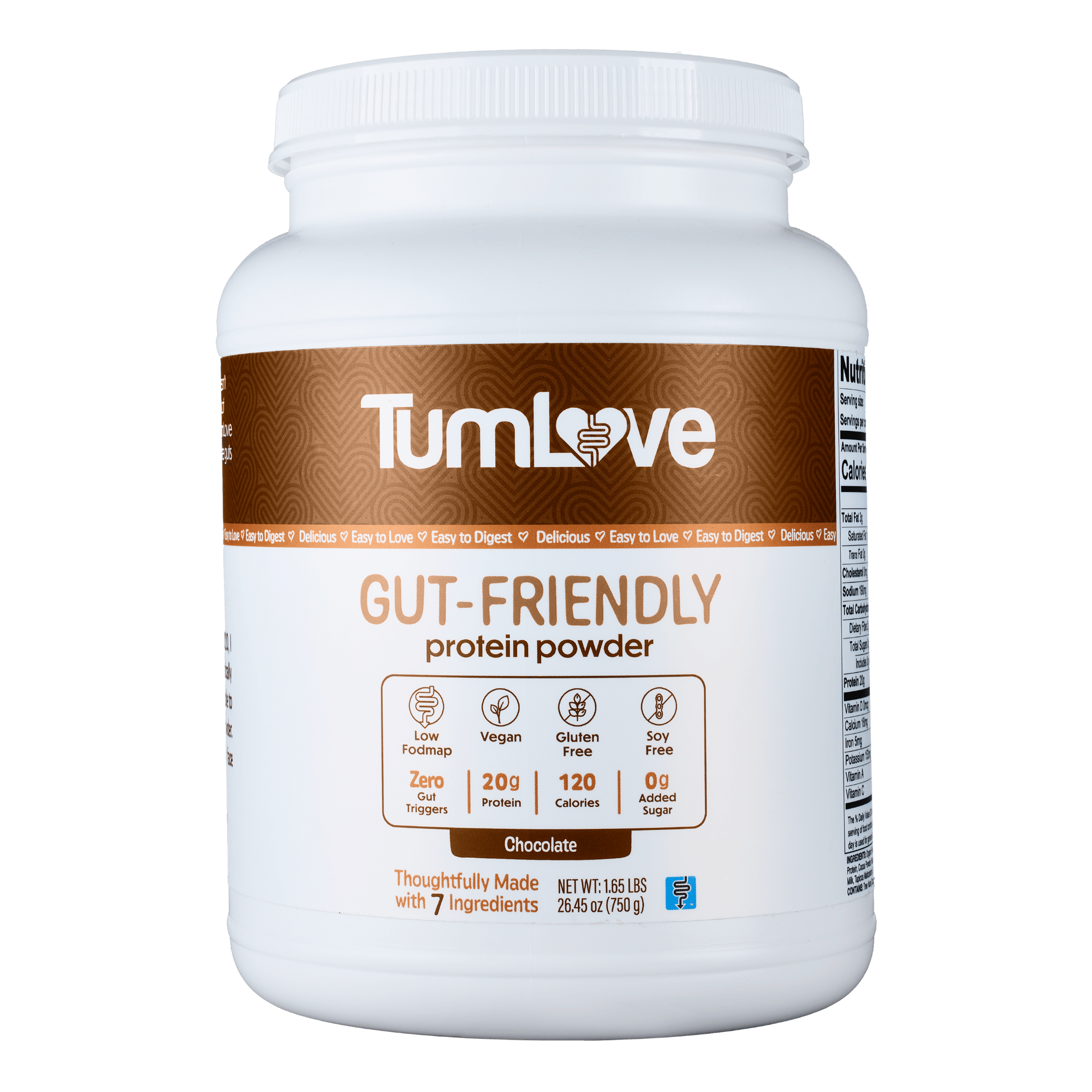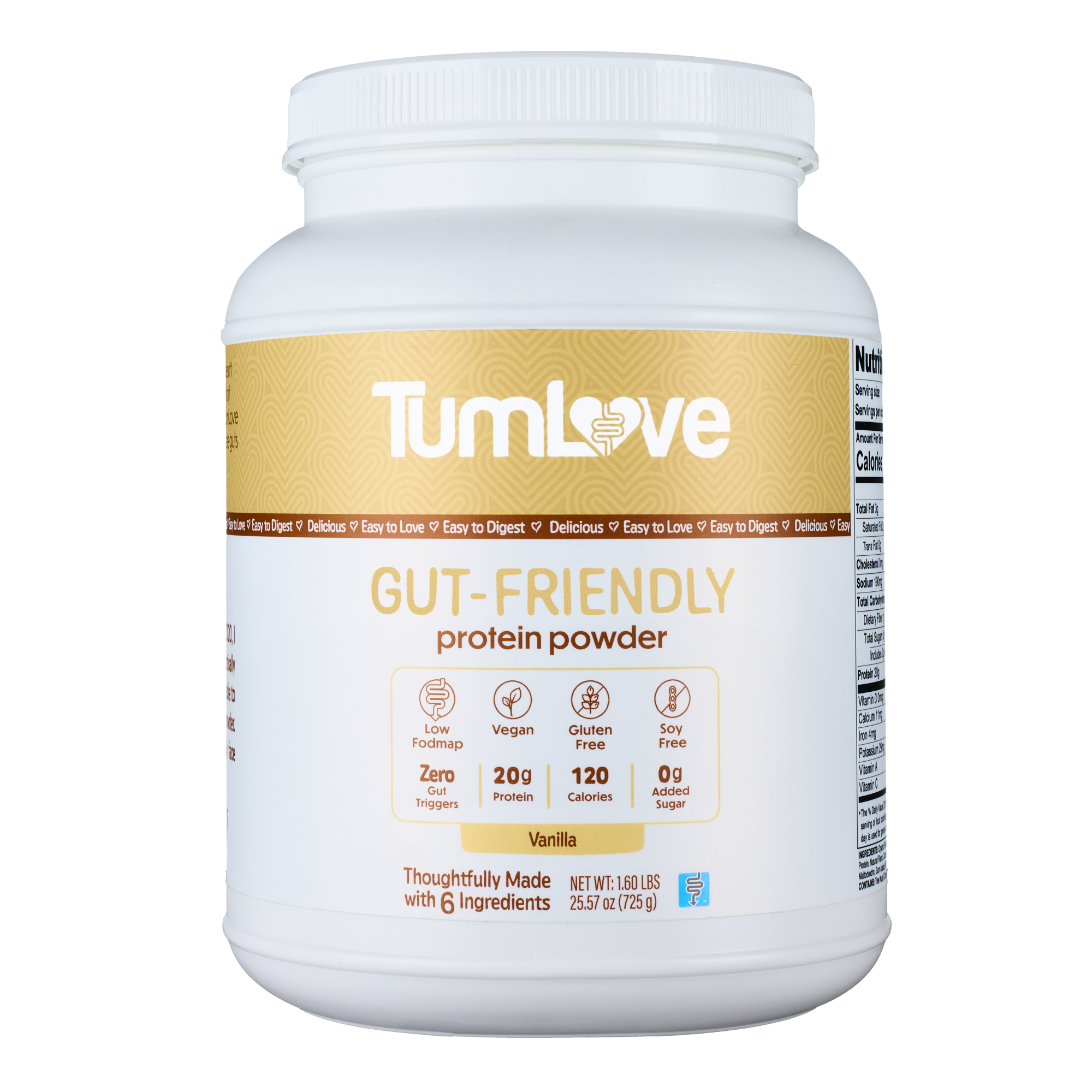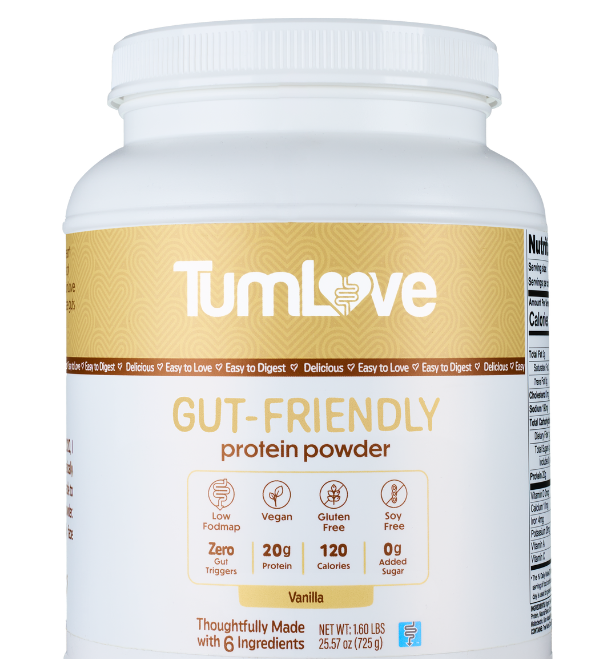As we step into 2024, navigating the world of Irritable Bowel Syndrome (IBS) can feel like a daunting task. Thankfully, the power to soothe your symptoms may lie in your kitchen (and even in your online shopping cart). Incorporating gut-friendly foods and supplements, like Tumlove's range of Low FODMAP protein powders, into your diet can make a world of difference in managing your IBS. In this guide, we'll take you through the best foods to incorporate into your routine, which are not only delicious, but also actively work to calm your IBS symptoms, promising a more comfortable and healthier year ahead
★★★★★
"Now I can do what I love while feeling great!"
- Lileia S.
What are the Best Foods for People with IBS?
First things first, understanding the optimal food choices for managing IBS is critical. It's all about finding balance and nourishing your body with the right nutrients without triggering IBS discomfort.
The Low FODMAP Diet: A Beacon of Hope for IBS Sufferers
When discussing the best foods for IBS, one cannot overlook the Low FODMAP diet. This diet plan focuses on limiting the intake of specific carbohydrates (Fermentable Oligosaccharides, Disaccharides, Monosaccharides, and Polyols) known to trigger IBS symptoms. Let's explore some of these Low FODMAP foods in detail.
1. Protein-Rich Foods
Foods high in protein are generally well-tolerated by people with IBS. These include:
- Lean meats like chicken and turkey
- Seafood such as fish and shellfish
- Plant-based proteins like lentils, chickpeas, and tofu
- Protein powders, especially those with a low FODMAP label like Tumlove's Gut-Friendly Protein Powder
2. Low-FODMAP Fruits and Vegetables
Several fruits and vegetables are low in FODMAPs and can be safely incorporated into an IBS-friendly diet. These include:
- Fruits like bananas, blueberries, oranges, and strawberries
- Vegetables such as carrots, bell peppers, cucumbers, and zucchini
3. Grains and Cereals
Opt for grains and cereals that have a low FODMAP profile. Examples include:
- Rice (white, brown, basmati, or jasmine)
- Quinoa
- Oats
Hydration is Key: Beneficial Beverages for IBS
What you drink is just as important as what you eat when managing IBS symptoms. Here are some hydration recommendations:
- Water: Hydration can help maintain healthy digestion, so aim to drink plenty of water throughout the day.
- Peppermint tea: Peppermint has antispasmodic properties, which may help reduce abdominal cramping in IBS.
- Ginger tea: Ginger can help soothe the digestive tract, reducing feelings of nausea and bloating.
Building an IBS-Friendly Meal Plan
Knowing which foods are beneficial for IBS is one thing, but how do you turn them into tasty, satisfying meals? Here are some meal ideas for each part of the day:
Breakfast:
Start your day with a bowl of oats topped with blueberries and a scoop of Tumlove's Low Fodmap Protein Powder for a protein punch. You could also opt for scrambled eggs with a slice of gluten-free toast.
Lunch:
For lunch, a quinoa salad with lean chicken and a variety of low FODMAP veggies like bell peppers, cucumbers, and carrots makes for a nutrient-rich and satisfying option.
Dinner:
Consider grilling a fillet of salmon for dinner, paired with a side of jasmine rice and steamed zucchini. It's a delicious, balanced meal that's easy on your gut.
Managing Portion Sizes: Quality and Quantity Matters
It's not just about what you eat but also how much you eat. Eating smaller, more frequent meals can help manage IBS symptoms. Large meals can overstimulate the gut, leading to cramping and diarrhea. Try to have four to five small meals a day instead of three large ones.
Tips for Dining Out with IBS
Dining out when you have IBS can be a challenge, but it's certainly not impossible. Here are some tips:
- Plan ahead: Check the restaurant's menu online beforehand to find IBS-friendly options. Don't hesitate to call the restaurant to clarify menu items.
- Speak up: Don't be shy about telling the server about your dietary needs. Most restaurants are accustomed to accommodating dietary restrictions.
- Portion control: Restaurant servings can often be large, so consider sharing a meal with a friend or taking half home for later.

Supplementing Your IBS Diet
Dietary supplements can also be a part of an IBS management plan. A soluble fiber supplement can help manage constipation, while a probiotic supplement can support gut health. Moreover, protein supplements like Tumlove's Gut-Friendly Protein Powder can help you meet your protein needs without exacerbating IBS symptoms.
Keeping a Food Diary
Keeping a food diary can help identify personal triggers. Note down what and when you eat, and any symptoms that occur. Over time, you may start to see patterns emerge. This diary can also be helpful when discussing your diet with a dietitian or healthcare provider.

The Role of Exercise in IBS Management
Exercise is another crucial component of IBS management. Regular physical activity can help reduce symptoms like constipation and bloating, improve mood, and reduce stress. Try to incorporate activities you enjoy into your routine, such as walking, yoga, swimming, or cycling.
Wrapping Up: Personalization is Key
Remember, there's no one-size-fits-all when it comes to diet and IBS. What works for one person may not work for another. The goal is to find a dietary pattern that you enjoy, meets your nutritional needs, and helps manage your symptoms.
Embracing a diet rich in low FODMAP foods, staying adequately hydrated, managing portion sizes, and supplementing your diet with gut-friendly products like Tumlove's Low Fodmap Protein Powder are all steps in the right direction towards a happier and healthier gut.
Shop Now




